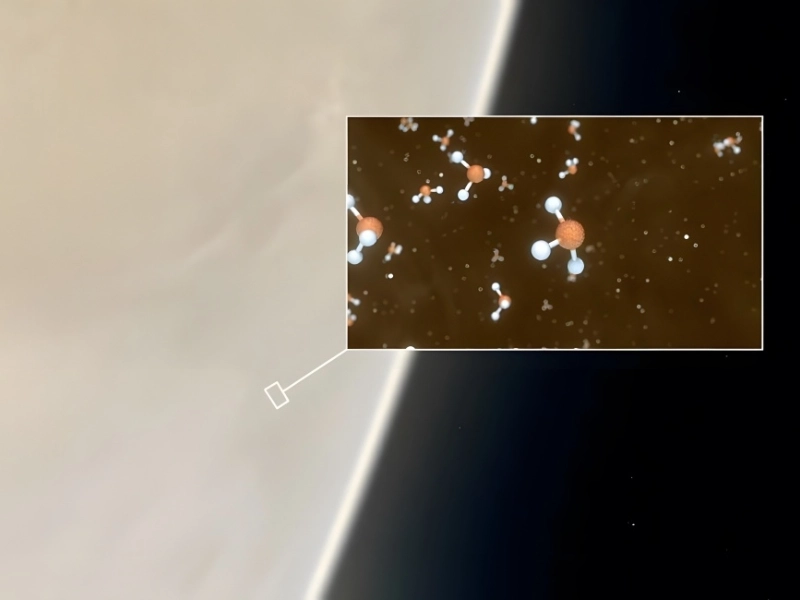Discovery of Trace Gases on Venus Found Year: 2020
Discoverer: Jane Greaves
Location: Planet Venus
In 2020, astronomer Jane Greaves made a groundbreaking discovery by measuring trace gases in the atmosphere of Venus, Earth's closest neighbor. These measurements allow scientists to explore chemical environments that differ significantly from those found on our planet. Notably, Venus possesses slightly acidic cloud decks, which have sparked interest and curiosity among researchers.
Initially, the discovery of these trace gases was met with skepticism within the scientific community. However, the newly obtained data has proven to be significant, opening up new avenues for understanding Venus's atmospheric composition and its potential for hosting unique chemical processes.

The Discovery of Phosphine on Venus Source: NASA / JPL / CALTECH & ESO, M. Kornmesser, L. CalíADA
Phosphine is a gas that, as far as we know, is produced exclusively by life forms on Earth. The detection of phosphine in the atmosphere of Venus has sent shockwaves through the scientific community, particularly in the field of astronomy. This unexpected finding raises intriguing questions about the potential for life beyond our planet. However, the data surrounding this discovery has faced extensive criticism, leading to debates about its validity and implications.
Scientists have scrutinized the methods used to detect phosphine, with some suggesting alternative explanations for its presence. This skepticism highlights the complexities involved in studying extraterrestrial environments and the challenges of interpreting data from distant planets.